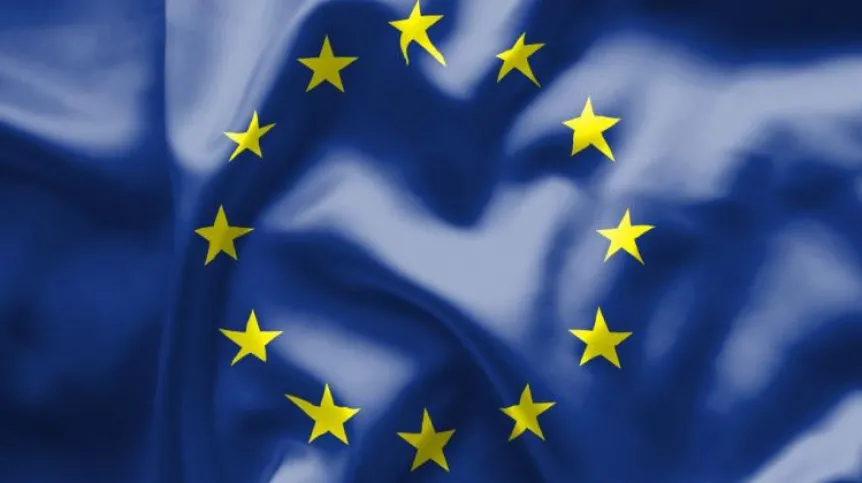
Two Polish scientists: physicist Prof. Marek Kuś and electronics engineer Dr. Grzegorz Kasprowicz have been nominated to the group of twelve strategic advisers called Quantum Flagship. This flagship scientific initiative of the European Commission has a budget of 1 billion euros. Its goal is to develop quantum technologies.
Members of the group will advise the European Commission on strategic decisions on financing the projects related to the development of quantum technologies in the Horizon 2020 programme. The EU funds will allow to develop solutions based on quantum phenomena related to communication and data transmission, complex calculations, simulations and diagnostics.
Prof. Marek Kuś from the Center for Theoretical Physics of the Polish Academy of Sciences and Dr. Grzegorz Kasprowicz, one of the founders of Creotech Instruments SA, will join the group of European scientists and representatives of the largest technology companies in Europe. The elite group of advisers also includes representatives of such companies as Airbus, Ericsson, as well as representatives of the world of science from Germany, France, Spain, Italy, Romania, the Netherlands and Slovakia. The first meeting of the group will take place on May 23 in Brussels.
The area of research interests of Prof. Marek Kuś is the physics of chaos and non-linear phenomena, the theory of stochastic processes, geometrical methods in physics, quantum computing and quantum chaos. He is interested in applying mathematics to describe quantum systems; these systems can be used for information processing, transfer and storage. The professor also deals with the basics of quantum mechanics. From this point of view, he explains the role of randomness in nature. He is a promoter of science, his lectures on the subjects such as "Random Event", "Infinity" and "Does science solve philosophical problems?" are available on YouTube. The scientist analyses the philosophical problems of exact sciences with passion.
Dr. Grzegorz Kasprowicz is a graduate of the Faculty of Electronics and Information Technology of Warsaw University of Technology. As part of his research work, he deals with reprogrammable measurement systems mainly for high-energy physics and experimental thermonuclear Tokamak reactors. He worked at the European Organization for Nuclear Research (CERN), where he developed an innovative proton tracking system in accelerators as part of his PhD project. At Creotech Instruments, he is responsible for the area of research, development and implementation of new technologies, including time synchronization systems.
"Solutions that use quantum phenomena are already used in areas such as communication, cryptology, but the most evident proof that the quantum revolution is actually taking place, will be the use of quantum phenomena in computer technologies" - says Dr. Grzegorz Kasprowicz.
The most advanced research centres in the world are currently looking for such applications. While only a few years ago the idea of creating a "quantum computer" was mainly the subject of theoretical considerations of scientists, currently the largest global technological players and the strongest countries invest huge amounts in the pursuit of specific solutions.
The goal of the Quantum Flagship initiative is to ensure Europe`s strong position in this global race. According to Dr. Anna Kamińska from Creotech Instruments SA, advanced research on quantum computers is currently conducted by large and reputable companies. In 2018, Google presented a 72-qubit quantum processor. IBM released the first commercial 20-qubit quantum computer this year. Microsoft, Intel, Airbus, as well as the Chinese e-commerce giant Alibaba conduct their own investments and research. The world leader in the use of ion traps in quantum technologies is IonQ, which has recently calculated the ground state energy of the water molecule on its 11-qubit system.
"The quantum state, called spin, is the perfect +quantum world+ candidate to play the role of qubit, the unit of quantum information. Qubit is expected to become the bit`s successor in quantum computers. If we read the so-called projection of quantum spin, it can have the value of +up+ or +down+, which corresponds to the 0 or 1 values we know from the binary system, but this is where the analogy with classic computers ends. Quantum computers can use mixed states +a bit of 0 and a bit of 1+, which completely changes the nature and available computing power of the machine" - explains Dr. Kamińska.
She emphasizes that the implementation of quantum computers will significantly improve the solution of certain classes of computational problems. It will create new possibilities in analysing big data, machine learning methods, pattern recognition, modelling processes in physics, chemistry, biology and medicine. Such computing capabilities will also find important applications in national security, finance and cybersecurity.
PAP - Science in Poland
kol/ agt/ kap/
tr. RL













